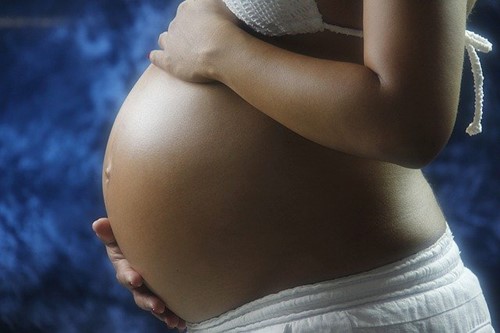Your Emotional Recovery After Birth
By Dr Ellie Rayner from The Maternity Collective
Now that we have come to the end of Maternal Mental Health Awareness month, it is important to remember that any parent can be affected by mental illness at any time of the year. It is vital therefore, that we continue to raise awareness of the normal thoughts and feelings you may experience after birth, but also the more serious signs to look out for in yourself, or a loved one, that may need specialist support. In this article I have discussed the different feelings commonly experienced in the postnatal period and where to get more help if needed.
It is completely normal to feel emotional after you give birth. The majority of pregnancies and deliveries are uncomplicated and result in a healthy mother and baby and although this in itself is a truly wonderful thing, it can fail to acknowledge the huge adjustments that occur, physically, mentally and socially after birth so it is important to recognise that this time can be challenging for some parents, but there is lots of specialist support and advice available to you if needed.

Postnatal Blues
The ‘Baby Blues’ usually start in the week after birth and last up to 10 days postnatal. No matter how much you love your baby a lot of new mums find themselves weepy, irritable and emotional but not knowing why. This is self-limited and will usually settle without any further help, but it is important to talk to someone about the feelings you are experiencing.
Postnatal Depression
Unfortunately, Postnatal Depression (PND) can affect both mums and dads after birth and it is different from the Baby Blues. PND is when you have more serious symptoms of feeling increasingly depressed, hopelessness, guilty or despondent. It is a mental health condition and therefore symptoms can vary from mild to severe and can affect everyone in different ways. It usually occurs in the 2- 8 weeks following birth, although can happen anytime up to the first year. If you have postnatal depression you may not be able to stop crying, have loss of interest in your baby, feel unable to cope or have increased anxiety. You might have other problems such as sleeplessness, aches and pains, feeling unwell and losing your appetite.
The most important thing is not to struggle alone. Postnatal Depression is an illness and you need help, just like you would if you had a urine infection. It is not a sign of weakness or being a bad mother and the good news is, with the right care and support, the majority of parents will make a full recovery. Some of the treatment options your doctor might offer include an exercise program, cognitive behavioural therapy, counselling, or even antidepressants if your symptoms are more severe.
Postpartum Psychosis
There is a more serious mental health condition that only affects women in their postnatal period called Postpartum Psychosis. This is a rare mental health condition that requires a mother to be admitted to a hospital for psychiatric treatment and occurs in between 1-2 per 1000 women. This can develop within the hours after birth and is very serious and needs urgent attention. It is often noticed as the mother acting strangely and includes experiencing delusions, hallucinations and confused thoughts. In very severe cases a mother might try and hurt herself or her baby. It is more likely to happen if you have a severe mental illness currently or in the past or have a family history of a perinatal mental health illness. There are lots of specialist mother and baby centres now, to enable mothers to receive expert treatment without needing to be separated from their baby.
If you feel like you might be experiencing any of these symptoms, or you know someone who might be, then it is crucial you get immediate help from your midwife, GP or health visitor. Your midwife will be asking you and your partner regularly about your mood throughout pregnancy and this will continue into your postnatal period so if you’re struggling or have any concerns then talk to them. They are there to support and help you physically and mentally with all aspects of your pregnancy and the newborn period.
What Do I Do If I am Feeling Like This?
Firstly, share your feelings. Find someone you can talk to as it is important you feel supported and understood whether it be a friend, family member, Midwife or Health Visitor who will listen and will not judge. Try talking to other parents as this can reassure you, you are not alone. Exercise causes the release of prostaglandins, which will help improve your mood so head out for a brisk walk or swim and it really will help. Try and eat regularly and avoid eating badly as this will not help your energy levels or general wellbeing. Try and get some help if you need it, learn to say ‘yes’ to friends and family – which is really hard for lots of us to do – but offers for help, such as vacuuming, childcare or making dinner will make a huge difference in allowing you some extra time. Finally, be easy on yourself. It is easy to forget about yourself when you are caring for a new baby but try to take some time for yourself where you can. Adjusting to being a parent is hard so be patient, you may have some wonderful moments with your new baby, but even the easiest of babies can be exhausting so recognise this and that it is common to feel overwhelmed.
It is really important that if you are feeling any of these symptoms that you speak to someone, ideally a healthcare professional that can provide you with the support you need. As a birth partner, this is also a difficult time for you, and it is important you are not forgotten during this time, so if you also are finding yourself struggling then please do also talk to someone you can trust.
There is lots of information online on the NHS choices website and the PANDAS Foundation provides telephone support and online information.
-------------
About the Author
 Dr Ellie Rayner, Obstetrician and Gynaecologist, Antenatal and Hypnobirthing Teacher and founder of The Maternity Collective.
Dr Ellie Rayner, Obstetrician and Gynaecologist, Antenatal and Hypnobirthing Teacher and founder of The Maternity Collective.
Dr Ellie Rayner is a practicing Obstetrician and Gynaecologist and founder of The Maternity Collective. She is the only Obstetrician to offer private and group, expert-led Antenatal and Hypnobirthing Classes both Online and face-to-face. She is passionate about providing parent-centred, evidence-based care for all pregnancies and supports all methods of birth. Follow Dr Ellie Rayner @maternitymedic for the latest evidence-based information on pregnancy, birth and women’s health issues.
The Maternity Collective provide comprehensive online antenatal and birth preparation courses led by a team of NHS expert healthcare professionals, including a Community Midwife, Obstetrician, Internationally Board-Certified Lactation Consultant (IBCLC) and Newborn Sleep and Behaviour Expert. They offer a complete 7 hour online antenatal and birth preparation course that can undertaken from the safety of your own home, at your own pace with videos to re-watch as many times as needed. More information is available at https://www.thematernitycollective.co.uk/